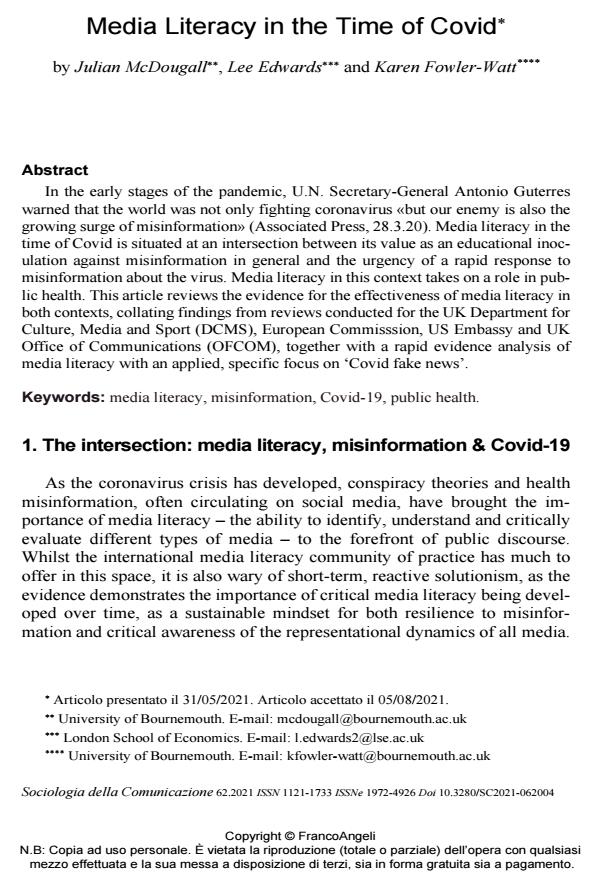Media Literacy in the Time of Covid
Journal title SOCIOLOGIA DELLA COMUNICAZIONE
Author/s Julian McDougall, Lee Edwards, Karen Fowler-Watt
Publishing Year 2021 Issue 2021/62
Language English Pages 19 P. 50-68 File size 317 KB
DOI 10.3280/SC2021-062004
DOI is like a bar code for intellectual property: to have more infomation
click here
Below, you can see the article first page
If you want to buy this article in PDF format, you can do it, following the instructions to buy download credits

FrancoAngeli is member of Publishers International Linking Association, Inc (PILA), a not-for-profit association which run the CrossRef service enabling links to and from online scholarly content.
Keywords: media literacy, misinformation, Covid-19, public health.
- Mapping the Inclusion of Children and Youth With Disabilities in Media Literacy Research Carla Sousa, Conceição Costa, in Media and Communication /2022
DOI: 10.17645/mac.v10i4.5769 - Combatting the Misinformation Crisis: A Systematic Review of the Literature on Characteristics and Effectiveness of Media Literacy Interventions Ellen Droog, Ivar Vermeulen, Dian van Huijstee, Davit Harutyunyan, Santiago Tejedor, Cristina Pulido, in Communication Research 00936502251363705/2025
DOI: 10.1177/00936502251363705 - It matters what you see: Graphic media images of war and terror may amplify distress E. Alison Holman, Dana Rose Garfin, Roxane Cohen Silver, in Proceedings of the National Academy of Sciences e2318465121/2024
DOI: 10.1073/pnas.2318465121 - Digital Inclusion Anna Feigenbaum, Julian McDougall, Ozlem Demirkol Tonnesen, pp.147 (ISBN:978-3-031-28929-3)
Julian McDougall, Lee Edwards, Karen Fowler-Watt, Media Literacy in the Time of Covid in "SOCIOLOGIA DELLA COMUNICAZIONE " 62/2021, pp 50-68, DOI: 10.3280/SC2021-062004